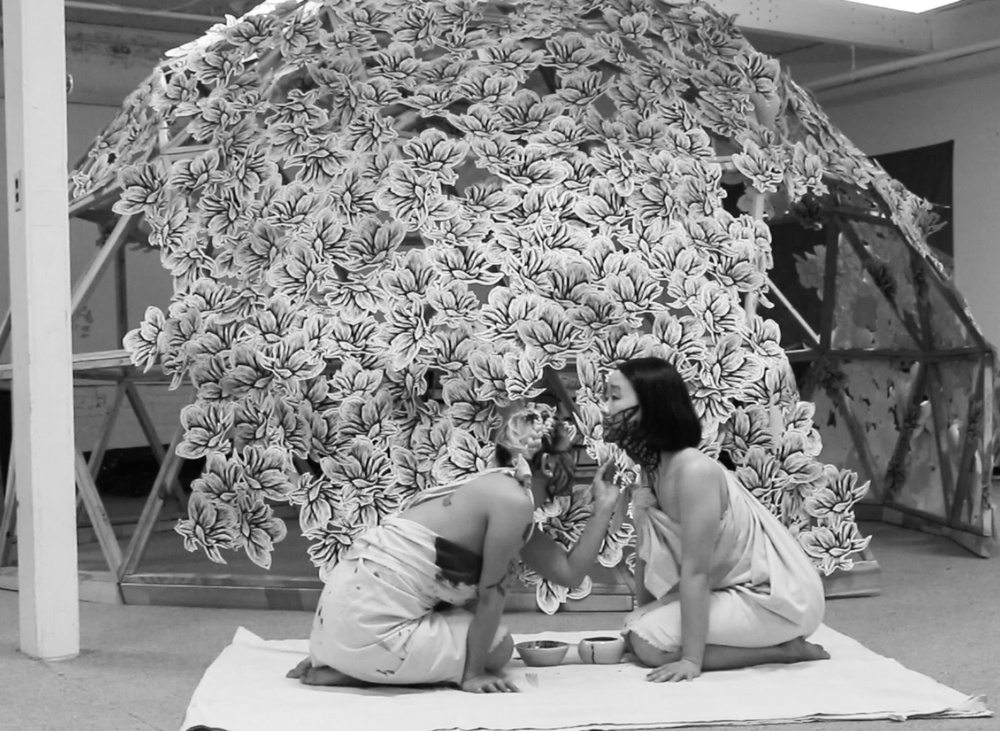
ARMING WXMBSPACE
first performed on January 25, 2020
HANA Center
performed once in 2020
RAELEEN KAO, LARIEL JOY
Chicago, IL
391402213r391402213a391402213e391402213l391402213e391402213e391402213n391402213k391402213a391402213o391402213@391402213g391402213m391402213a391402213i391402213l391402213.391402213c391402213o391402213m
www.frozenCharlottepress.com
ARMING WXMBSPACE
RAELEEN KAO, LARIEL JOY
Arming Wxmbspace was a collaboration between Lariel Joy and Raeleen Kao which enveloped Lariel Joy’s Wxmbspace Project dome with hundreds of hand-pulled screen prints by Raeleen Kao. The magnolia tree is native to East Asia and Southeast Asia as well as the Americas, and is representative of both artists’ Asian American heritages. Traditionally, within Asian cultures, the magnolia is a symbol of “yin,” perfect feminine beauty and gentleness. In an upheaval of conservative Asian upbringings, the artists transform this symbol of female docility into a hard shell of armor.
At the opening of Arming Wxmbspace, Korean-American artist Lariel Joy and Taiwanese-American artist Raeleen Kao ritualistically marked each other’s faces in homage to a broad history of women’s facial tattoos throughout East and Southeast Asia which acted as status symbols and personal protection.
For instance, according to the indigenous Taiwanese Atayal customs, only the women were permitted to be tattooers. Among the Atayal people, tattoos indicated coming-of-age and skill mastery. While the men’s tattoos were simple markings, the women’s most distinctive tattoos were elaborate designs which curved across their mouths from ear to ear. When Taiwan fell under Japanese occupation at the end of the nineteenth century, this practice was condemned as savage and banned, with some women being forced to painfully remove their sacred tattoos.
By reclaiming the traditional practice of tattooing through the performance, the artists rewrite the tradition as a ritual of protecting women and bodies with wombs in the face of colonization, and open a safe space for them.
Arming Wxmbspace performance occurred at HANA Center, a non-profit organization serving Korean American, immigrant, and multi-ethnic communities in Chicago. This collaboration is additionally an act of support for women, mothers, people with wombs, those who have experienced loss of life in the womb, and survivors of gender-based violence. It is also a celebration of the life-giving capacity of the womb.